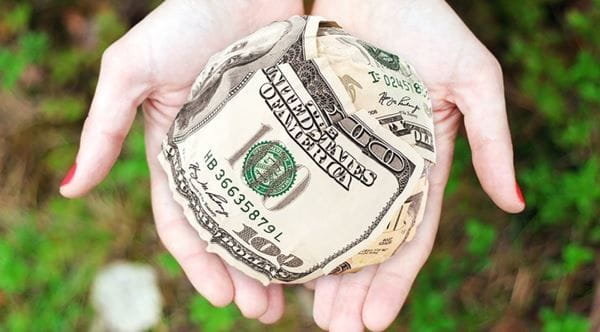President Suspends Student Loan Interest… But There’s a Catch
While the social distancing measures necessitated by the COVID-19 outbreak—cancelled events, school closures, and forced remote work—have inconvenienced nearly all of us, for some, coronavirus has meant economic catastrophe. Workers who become ill without access to paid sick leave, small business owners forced to close up shop, and hourly and/or tip-dependent employees dealing with either closed—or simply empty—workplaces can quickly find themselves teetering on the edge of financial solvency.
In recognition of this dilemma faced by many working families—and, specifically, many student loan borrowers—President Trump announced on Friday afternoon that his administration will be temporarily waiving interest charges on federal student loans.
While you may expect your monthly payment to drop in light of this change, surprisingly, it will not. Your minimum monthly payment will remain the same, but instead of being split between principal and interest, your entire payment will go to principal.
This acceleration of principal payments will help you in the long run. If you continue to make your required monthly payment, you will eat into loan balances more rapidly, so loans will be paid off sooner and you will pay less total interest on the loan. If you are able to continue to make your loan payments, do so. Your overall loan costs will decrease substantially due to this interest pause and acceleration of principal payments.
Unfortunately, however, this long-term advantage does not help you in the short term. If you are struggling to meet your monthly loan obligations right now (or will be in the near future), you need to take an extra step to benefit from the new interest waiver.
You can contact your student loan servicer to request a forbearance, or temporary cessation of loan payments. Minimum monthly payments are not required for the length of the forbearance, and your credit report will not be negatively affected. Normally, the downside of taking a forbearance is that interest continues to accrue on your loans and will capitalize at the end of the forbearance period, increasing your principal balance and total cost of your loans. Under the administration’s temporary interest suspension, however, no interest will accrue on your federal student loans, so there is no cost to taking a forbearance (other than the opportunity cost of not making accelerated principal payments).
While many questions still remain about the emergency interest pause, including exactly what federal student loans are affected and how quickly servicers will be able to execute changes when their own workforces are strained by virus protocols, I think borrowers can feel safe implementing the following game plans:
- If COVID-19 has not negatively impacted your income and you can afford your monthly payments, continue to make them. You will reap the benefits of the interest pause in decreased long-run costs and repayment time.
- If your cash flow has been decreased due to events surrounding the new coronavirus (or any other reason) and you cannot afford your monthly payments, contact your student loan servicer immediately to request a forbearance. (There are longer-term alternatives to consider, such as requesting an economic hardship deferment or income-dependent repayment plan, if your financial issues persist, but a forbearance is generally the quickest solution to put into place.)






